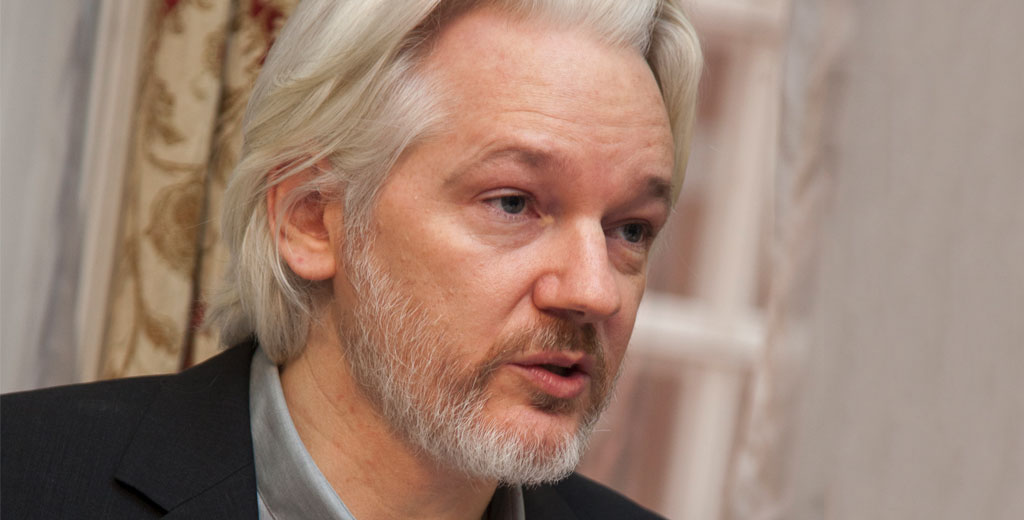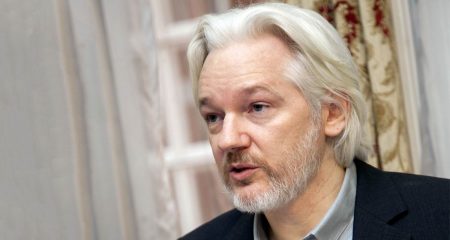
Ecuador rejected WikiLeaks’s claims that it plans to expel the organisation’s founder, Julian Assange, from its London embassy, calling them “false news” aimed at undermining the dignity of the country.
In a statement, Ecuador’s foreign ministry denied it has an agreement with the UK about Assange’s arrest. By spreading such news, “the asylum seeker and his associates express once again ingratitude and disrespect toward Ecuador”, the ministry said.
WikiLeaks said earlier on Twitter that Ecuador was about to expel its founder within “hours to days”, citing what it called a high-level source within the Ecuadorian government. Jennifer Robinson, a lawyer for Assange, declined to immediately comment.
Assange sought the protection of Ecuador in 2012 to avoid extradition to Sweden, where he faced rape allegations, or the US, where he could be punished for publishing secret government documents. Swedish prosecutors have since dropped the charges against Assange but he failed in an attempt last year to have the UK arrest warrant against him dropped.
US prosecutors in court filings last year may have inadvertently revealed that Assange has been charged in America. In an unrelated case, federal prosecutors in Virginia said that “no other procedure is likely to keep confidential the fact that Assange has been charged”.
The UK has said Assange, who is wanted for skipping bail, will be arrested when he leaves the embassy. If the US puts in an extradition request, a London court will review the matter in a process that could last months.
‘Very surprised’
WikiLeaks cited the unidentified person as saying the planned expulsion is a response to the organisation’s recent tweet linking to a website that alleged money laundering and corruption during Ecuadorian President Lenin Moreno’s time as United Nations special envoy for the disabled in Geneva. Foreign minister Jose Valencia said last month that the government was “very surprised” by that and other actions by Assange and his lawyers.
The website in question also linked to e-mails and phone screen captures tying Moreno to the corruption scandal. Moreno, speaking in a nationwide broadcast on 27 February, denied any wrongdoing.
Ecuador last year introduced rules governing Assange’s life in its London embassy. The protocol, which warned that it could expel him if he should violate its terms, addressed public statements that could damage the host government. Assange, who was granted asylum by Ecuador in 2012, lost local and international legal challenges against the protocol. — Reported by Jose Orozco, Thomas Penny and Stuart Biggs, with assistance from Jim Silver, Sam Kim, Ken McCallum and Shikhar Balwani, (c) 2019 Bloomberg LP



